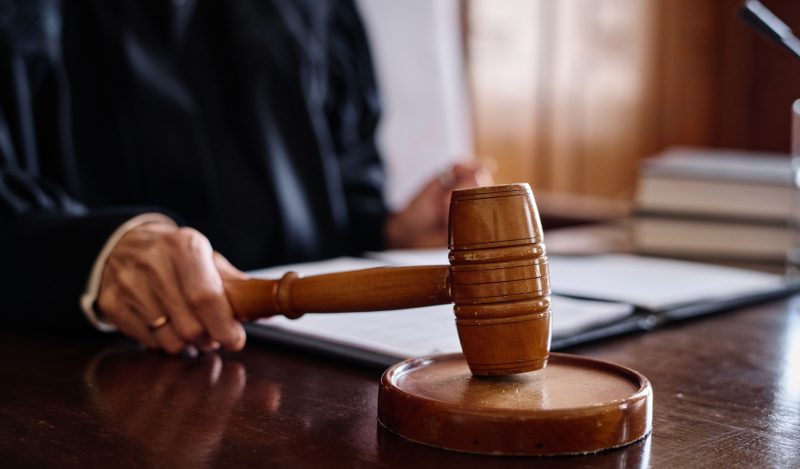This week, Meta CEO Mark Zuckerberg made headlines as he overhauled his company’s “fact-checking” operations and detailed how the Biden administration attempted to coerce social media companies into censoring posts critical of the government’s Covid response. If the company refused to comply, the Biden administration threatened to retaliate through weaponizing the judicial system, Zuckerberg explained.
“Biden administration officials used to call and scream at us demanding that we remove Covid related content, even things that were facts, or memes and humor,” he told Joe Rogan. “When we refused, we found ourselves under investigation by several agencies.”
Zuckerberg continued:
“During the Biden administration, when they were trying to roll out the vaccine program…while they were trying to push that program they also tried to censor anyone who is basically arguing against it. And they pushed us super hard to take down things that were honestly, were true. They basically pushed us and said, you know, that ‘anything saying that says vaccines might have side effects, you basically need to take down.’”
The forthright explanation renewed discussion of the Government’s censorship of dissidents in the Covid response, but it merely repeated information known to the Supreme Court last summer. And please note: we have emails from Zuckerberg to Fauci from February 2020 in which he willingly turned over his operations to CDC propaganda, perhaps under an intuitive understanding that it would be better to position his company for power instead of against it. In addition, Facebook absolutely did censor true information about vaccines, and did it as a matter of policy.
Last June, the Supreme Court considered whether to uphold a lower court injunction preventing government agencies from pressuring social media giants to censor politically unfavorable content. Justice Alito outlined scores of First Amendment abuses from the Biden administration and detailed the ways in which the White House used the threat of the regulatory state to coerce Meta, Twitter, and other companies into effectuating their censorship regime. The opinion cited Zuckerberg, who said the threat of antitrust lawsuits was an “existential” threat to his company.
But Alito was in the minority, as a six-Justice majority, led by Amy Coney Barrett, overturned the injunction in Murthy v. Missouri. The Court found that the plaintiffs, a group including doctors, news outlets, and state attorneys general who faced social media censorship, lacked standing.
Zuckerberg’s recent statements highlight the absurdity of Justice Barrett’s opinion, which was joined by Chief Justice Roberts, Justice Kavanaugh, and the Court’s liberal bloc. But his admissions are not revelations at all. Instead, they confirm already-known abuses that he and his company aided and abetted as the political tides turn, just as Zuckerberg did in 2022 when he told Rogan that the Intelligence Community pressured social media companies to suppress reporting on the Hunter Biden laptop.
At the time of the opinion, Brownstone wrote that the Court’s “opinion rests on omitted facts, skewed perceptions, and absurd conclusory statements,” while the dissent, issued by Justice Samuel Alito and joined by Justices Neil Gorsuch and Clarence Thomas, “masterfully recounts the facts of the case and the inconsistency of the majority.”
In “The Censors’ Henchmen,” we outlined how Rob Flaherty, President Biden’s Director of Digital Strategy, spearheaded the White House’s clamp down on free speech, through calling and screaming at company officials to remove content, as Zuckerberg told Rogan.
“Are you guys fucking serious?” Flaherty exploded at Facebook after the company failed to censor critics of the Covid vaccine. “I want an answer on what happened here and I want it today.”At other times, Flaherty was more direct. “Please remove this account immediately,” he told Twitter about a Biden family parody account. The company compiled within an hour.
Flaherty made it clear that he was concerned with political power, not veracity or disinformation. He demanded Facebook stifle “often-true content” that could be considered “sensational.” He asked company executives if they could interfere with private messages containing “misinformation” on WhatsApp.
In April 2021, Flaherty and Andy Slavitt, another Biden advisor, demanded that the company remove memes lampooning the Covid vaccine. In an April 2021 email, Nick Clegg, Facebook’s president for global affairs, informed his team at Facebook that Slavitt was “outraged…that [Facebook] did not remove” a particular post.
When Clegg “countered that removing content like that would represent a significant incursion into traditional boundaries of free expression in the US,” Slavitt disregarded the warning and the First Amendment, complaining that the posts “demonstrably inhibit[ed] confidence” in the Covid vaccines. In August 2021, Facebook announced in internal emails, later released publicly, that it would change its censorship policies as a result of pressure from the Biden White House.
In Murthy, the majority opinion was bereft of references to the perpetrators of the censorship regime or their statements of coercion. Justice Barrett did not mention Rob Flaherty or Andy Slavitt – the two main henchmen behind the Biden Administration’s censorship efforts – a single time in her holding. Alito’s dissent, however, devoted pages to recounting the White House’s ongoing censorship campaign.
Justice Alito, in notable contrast, cited how “the White House’s emails were phrased virtually as orders and the officials’ frequent follow-ups ensured that they were understood as such.”
More than six months ahead of Zuckerberg’s rebranding press tour, Justice Alito outlined how the legal system provided the regime with the weapons to coerce social media companies into submission.
Alito explained that social media companies are “far more vulnerable to Government pressure than other news sources.” He wrote: “If a President dislikes a particular newspaper, he (fortunately) lacks the ability to put the paper out of business. But for Facebook and many other social media platforms, the situation is fundamentally different. They are critically dependent on the protection provided by §230 of the Communications Decency Act of 1996, 47 U. S. C. §230, which shields them from civil liability for content they spread.”
This creates an all-encompassing regulatory authority that demands subservience from social media companies. The Murthy majority, however, only mentioned this “existential” threat in passing, noting that Jen Psaki “spoke generally about §230 and antitrust reform” in July 2021 amid White House pressure to promote vaccine censorship. But evidently, Barrett and the rest of the majority did not feel inclined to address the issues that Justice Alito raised in dissent.
Alito noted that Meta executives’ responses “to persistent inquiries, criticisms, and threats show that the platform perceived the statements as something more than mere recommendations.”
Justice Alito, citing the facts that the majority ignored, explained:
“For these and other reasons, internet platforms have a powerful incentive to please important federal officials, and the record in this case shows that high-ranking officials skillfully exploited Facebook’s vulnerability. When Facebook did not heed their requests as quickly or as fully as the officials wanted, the platform was publicly accused of “killing people” and subtly threatened with retaliation.”
While Zuckerberg’s about-face is welcome, his statements do not reveal any new information. They also understate the extent of the threat and subsequent full cooperation, which began much earlier than the Biden administration.
Zuckerberg’s recent statements highlight the dereliction of the Supreme Court, including Chief Justice Roberts, Justice Kavanaugh, and Justice Barrett in their failure to uphold the First Amendment against the winds of political pressure. They are supposed to support the US Constitution, not find clever ways to exonerate agencies that blatantly and aggressively trample upon it.
Join the conversation:


Published under a Creative Commons Attribution 4.0 International License
For reprints, please set the canonical link back to the original Brownstone Institute Article and Author.









